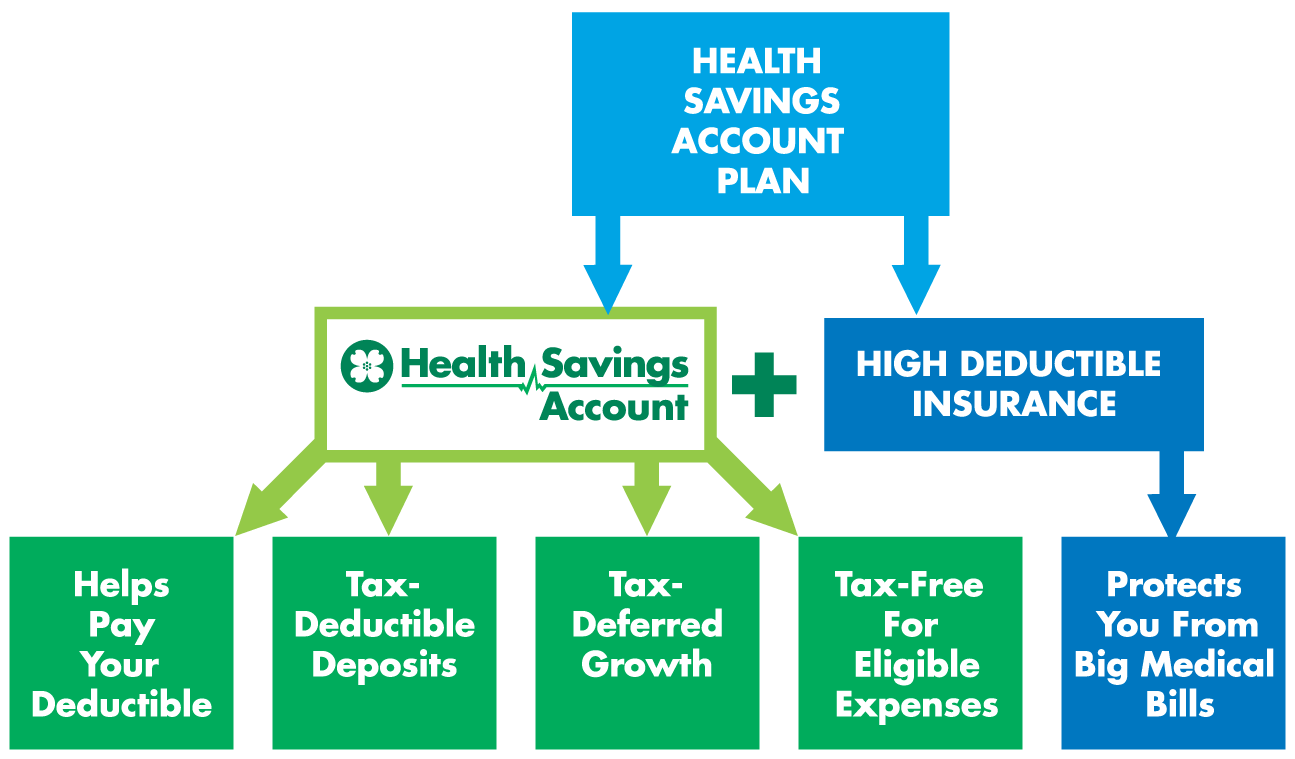Frequently Asked Questions
Your Health Savings Account (HSA) coupled with a High Deductible Health Plan (HDHP) can help you save money on your medical expenses. By choosing the HDHP you can save significantly on your health care premiums.
General Information
A Health Savings Account (HSA) is what you get when you combine a high-deductible health insurance plan and a tax-exempt savings account. They are designed to allow individuals to use pre-tax dollars to help pay for current and future medical expenses.

HSAs offer a triple tax advantage:
- Contributions are 100 percent tax-deductible for the account holder.
- Funds grow on a tax-deferred basis and funds are not taxed if used for an eligible expense.
- After age 65, funds can be used tax-free for eligible expenses, including Medicare premiums, or taxed with no penalty for other expenses.
Taking money out of your HSA is as easy as taking money out of your checking account. There are no claims to file - you simply swipe your HSA debit card or use Online Bill Pay. If you choose to reimburse yourself for eligible expenses, you can simply make a funds transfer using Online Banking, using Online Bill Pay or withdrawal funds at an ATM.
Yes. Your HSA funds can be used for your spouse and dependent children's out-of-pocket eligible expenses, even if they are not on your health plan. Please remember that no one in your family can have a medical FSA if you have an HSA.
HSAs are individual accounts based on IRS rules. If you’re both covered by a qualified HDHP, you can each setup accounts or you can run all expenses through one account.
- No use it or lose it rules
- Unspent balances in accounts remain in the account until spent
- Accounts can grow through investment earnings, just like an IRA
Enrollment and Contributions
- Make contributions through Shelter Insurance payroll
- Make a funds transfer through HSACentral.net or the HSA Central mobile app
- Visit a Central Bank branch
- $250 for insured-only coverage
- $375 for insured + spouse or insured + child(ren) coverage
- $500 for family coverage
| Contributions | Individual | Family |
|---|---|---|
| IRS Contribution Limit | $4,300 | $8,550 |
| IRS Contribution Limit age 55 and older |
$5,300 | $9,550 |
| Contributions | Individual | Family |
|---|---|---|
| IRS Contribution Limit | $4,400 | $8,750 |
| IRS Contribution Limit age 55 and older |
$5,400 | $9,750 |
The money in your HSA is always yours – there is no “use it or lose it” rule. All balances in your HSA are fully vested and remain in your account until spent. The money is yours even if you change jobs or health plans. With an HSA, you are in charge. You decide how much and when to contribute and whether or not to invest some of your savings in mutual funds for greater potential long term growth.
- Employers and employees can contribute to HSAs as long as the account holder meets the requirements for HSA eligibility
- Family members or any other person can make contributions on behalf of an eligible individual
Distributions from your HSA
If this is a benefits related question, please contact Karen Akers at (573) 214-6557 or by email, kakers@shelterinsurance.com with Shelter Benefits Management Inc. If this is a bank account related question, please contact Central Bank at hsa.boone@centralbank.net.
(Please remember that standard email is not secure against interception. Do not include confidential information such as account numbers, credit card or debit card numbers or your social security number when sending email.)